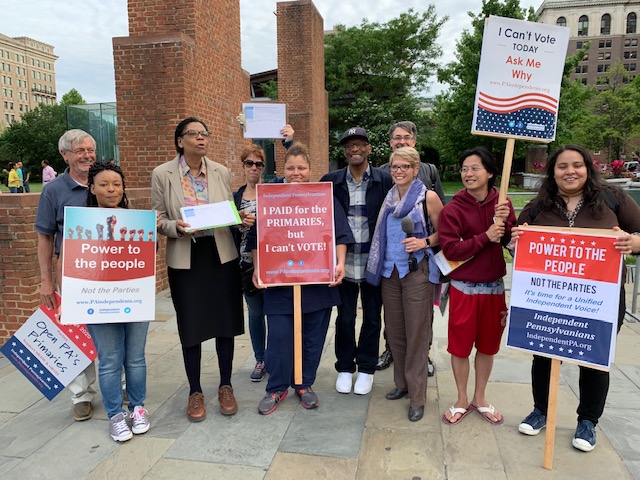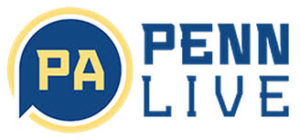
 PennLive (6/25/19)
PennLive (6/25/19)
The days of independent voters sitting on the sideline during Pennsylvania’s primary elections could be coming to an end. The Senate voted 42-8 to open primaries to allow the 785,000 unaffiliated voters to cast votes on either the Republican or Democratic ballots, starting with next year’s primary.
This is the first time this landmark bill that would move away from closed primaries ever got this far in the legislative process.
The measure, sponsored by Senate President Pro Tempore Joe Scarnati, R-Jefferson County, now goes to the House for consideration. But it could get folded into a broader election reform bill that includes a number of voting-related measures that are still being negotiated between the House, Senate and Gov. Tom Wolf as part of the overall budget package.
Wolf has signaled his interest in supporting open primaries.
“We’re thrilled to see the tremendous progress made on primary reform” said David Thornburgh, president and CEO of the Committee of Seventy, a nonpartisan better government advocate. “Our closed primaries were never fair to the voters who were shut out of these important elections, and the consequences of partisan bases gaining a disproportionate impact on who enters public office and their agendas has also been harmful to the effectiveness of government as a whole.”
Pennsylvania would join 16 other states that open their primaries to unaffiliated voters, according to the National Conference of State Legislatures.
Sen. Andy Dinniman, D-Chester County, noted that the number of independent voters is the fastest growing segment of Pennsylvania’s voters.
“We need to respect those voters,” he said. “This is the great middle in both parties including the independents feel they’ve been left out of the political process and that the extremes have taken over. This bill gives a voice to that great middle.”
Right now, independent voters can only vote on ballot questions in primaries and so many don’t turn out to the polls.
Sen. Lisa Boscola, D-Lehigh County, said she has been calling for this change for over 20 years.
“Frankly, our democracy doesn’t work if our citizens can’t participate,” she said. “We need to do all we can to encourage voting. Our election law often does the opposite.”
Sen. Katie Muth, D-Montgomery County, failed in her attempt to allow third-party voters to cast votes in primaries as well. Scarnati said those voters have made a choice as to which party they want to be affiliated with and have a voice in picking their party’s nominee.
Among those voting against the move to open primaries were five Republicans and three Democrats. Sens. Kristin Phillips-Hill, R-York County, said she opposed it because her constituents told her it made them uncomfortable. Sens. Pat Stefano, R-Westmoreland County, said it would make primary elections more costly for candidates because they would have to reach out to a broader audience to ask for their vote.
In a separate measure, the Senate voted 30-20 on a bill Boscola sponsored to eliminate straight party voting. She said over the last decades, nine states have removed this option from their ballot and now Pennsylvania is one of only eight states to still allow straight-ticket voting.
“Straight ticket voting promotes the election of a party not the election of a candidate,” Boscola said. “Straight ticket voting makes it more difficult for independent and minor party candidates to complete against the two major parties and I think that’s bad for our democracy.”
Several of her Democratic colleagues, however, opposed the bill, including some that supported it when the Senate State Government Committee considered the legislation. Senate Democratic spokeswoman Brittany Crampsie said her caucus is committed to modernizing elections but “election reform is a broad umbrella; open primaries and ending straight party voting are just two issues where our members aren’t all in the same place philosophically.”
Wolf spokesman J.J. Abbott said the governor is still evaluating the elimination of a straight-party voting option.
The chamber also voted to approve a bill to reduce the number of ballots that have to be printed to at least 10 percent of the highest number of ballots cast in any of the three previous like election.